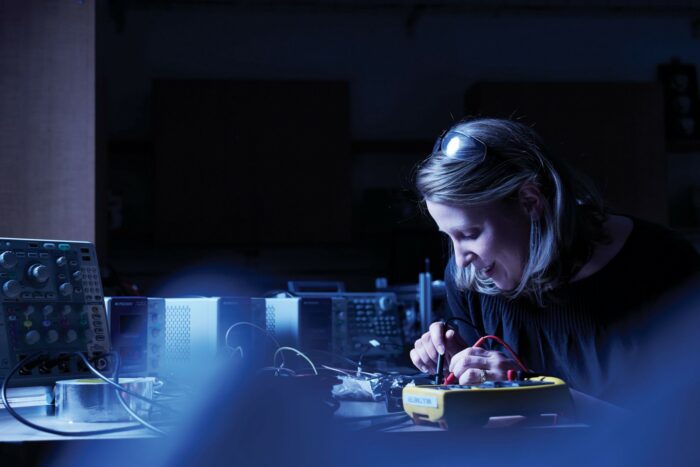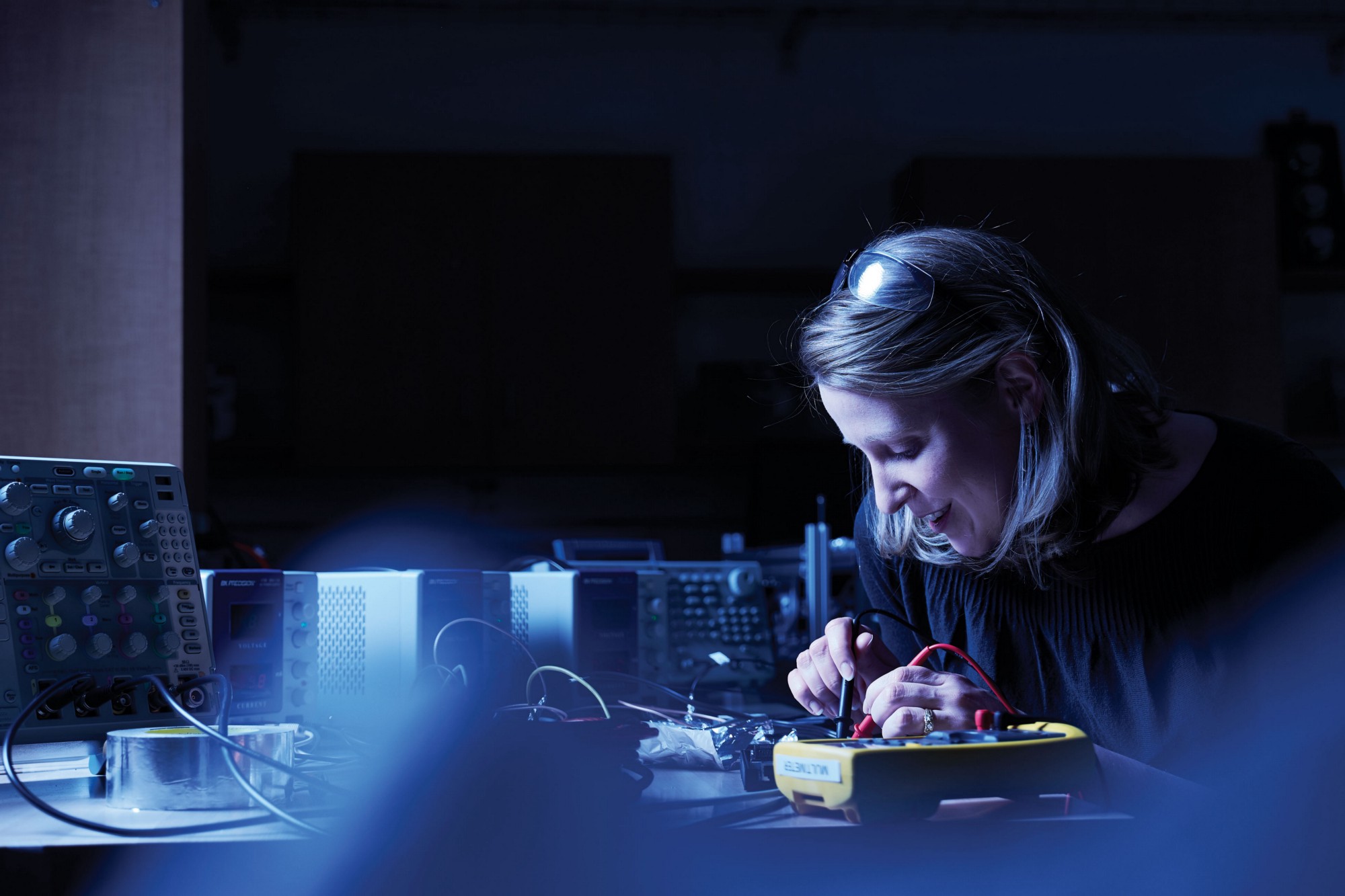

Dr. Karen Andeen, associate professor of physics in Marquette University’s Klingler College of Arts and Sciences, has been awarded a National Science CAREER grant worth about $870,000 over five years for her research into high-energy cosmic rays.
The project, “Cosmic Ray Composition across Five Decades in Energy (50 TeV to 5 EeV) with the IceCube Neutrino Observatory,” will allow Andeen and her research team to better understand the transitional zone of cosmic rays between commonly observed low-energy cosmic rays, such as those produced by stars exploding (supernovae) within our galaxy, and the rarer high-energy cosmic rays that are produced outside our galaxy.
“We are missing basic information about these high-energy cosmic rays—what they’re made of, where they come from—and they have so much to tell us about what is happening at the furthest reaches of our galaxy and beyond,” Andeen said. “Our main goal is to make a new map of the universe using cosmic rays and neutrinos. We have been working to develop new telescopes that will be able to operate in the unique conditions at the South Pole to provide a new measurement tool for these high-energy cosmic rays.”
The project will utilize three individual detector elements at the South Pole: IceAct, the two recently deployed prototype air Cherenkov telescopes; IceTop, ice-Cherenkov tanks located near the surface of the ice; and IceCube, a three-dimensional array of optical sensors buried up to two miles beneath the surface of the Antarctic ice sheet. These three elements provide three independent “snapshots” of cosmic ray interactions and will allow for the first event-by-event mass composition of cosmic rays through the transitional zone.
“We are excited for Dr. Andeen as this award will be a great benefit to her research, as well as the undergraduate research team she has assembled in her lab,” said Dr. Heidi Bostic, dean of the Klingler College of Arts and Sciences. “She has been a strong advocate of preparing students who are underrepresented in physics. These students often lack access to the hardware experience that will be beneficial as they advance in their careers.”
Andeen added, “So often students from underrepresented groups are pushed into data analysis and not afforded opportunities to gain hardware skills by building and testing the equipment we use. My lab is entirely geared toward developing all the skills our undergraduate students will need to succeed in their future careers. I consider my lab a gateway for these students as they look to work at larger institutions as graduate students or to enter the field directly.”
The Faculty Early Career Development (CAREER) Program is a foundation-wide activity that offers the National Science Foundation’s most prestigious awards in support of early-career faculty who have the potential to serve as academic role models in research and education and to lead advances in the mission of their department or organization. Activities pursued by early-career faculty should build a firm foundation for a lifetime of leadership in integrating education and research. NSF encourages submission of CAREER proposals from early-career faculty at all CAREER-eligible organizations and especially encourages women, members of underrepresented minority groups, and persons with disabilities to apply.



